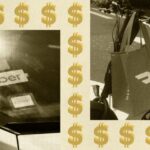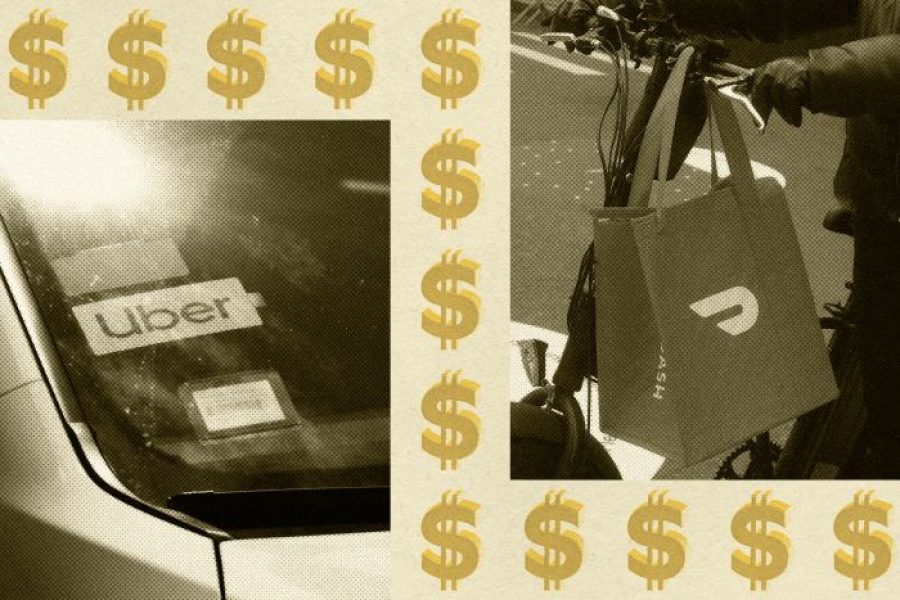Key takeaways:
- A Republican proposal aims to exempt tips from federal income tax to benefit workers in the service industry.
- However, the plan excludes gig workers like Uber and DoorDash drivers who are classified as independent contractors.
- Experts warn that the tax break may disproportionately benefit higher-earning tipped workers, exacerbating inequalities in the service sector.
Introduction
As the 2024 presidential election heats up, a contentious debate has emerged over a Republican proposal to eliminate federal income tax on tips for service workers. While proponents argue that the plan would provide much-needed relief for the industry’s employees, critics have raised concerns about its potential to deepen existing inequalities and overlook a significant portion of the gig workforce. The proposal, dubbed the “No Tax on Tips Act,” aims to exempt tips from federal income tax, but notably excludes independent contractors such as Uber and DoorDash drivers.
Detailed Analysis
The “No Tax on Tips” plan has garnered support from both sides of the political aisle, with President Donald Trump and Vice President Kamala Harris voicing their endorsement during campaign rallies in Nevada, a state with a significant service industry presence. However, experts and industry stakeholders have raised concerns about the proposal’s potential unintended consequences.
According to the Economic Policy Institute, the plan could harm more workers than it helps. By exempting tips from federal income tax, the proposal may reduce pressure on employers to raise base wages, effectively shifting the burden of compensation onto customers through increased reliance on tipping.
Furthermore, the plan’s exclusion of independent contractors like Uber and DoorDash drivers has raised concerns about its fairness and equity. According to the Wall Street Journal, these gig workers rely heavily on tips as a significant portion of their income, yet they would not benefit from the proposed tax break.
“This no-tax-on-tips plan attempts to turn the campaign slogan into something workable. ‘No Tax on Tips’ Plan Excludes Uber, DoorDash Drivers,” tweeted Richard Rubin, a tax policy reporter for the Wall Street Journal.
“It just doesn’t seem like it’s fair,” said Mary Sue Milliken, chef and co-founder of Mundo Hospitality Group. “I don’t understand why. Why should a tip earner get a tax break but the dishwasher doesn’t?”
Another concern raised by experts is that the proposal could disproportionately benefit higher-earning tipped workers, according to Howard Gleckman, a senior fellow at the Urban-Brookings Tax Policy Center. He estimates that only around 10% of waitstaff make $60,000 or more annually, and these workers would likely see the most significant benefits from the tax break.
“So if that’s you …if you’re a waiter at the French Laundry or somewhere where dinner is like $300, a 20% tip is pretty good money. That’s $60,” Gleckman said. “But if you’re a waiter at Mom’s restaurant where the blue plate special is $9.95, the tip is $2.”
Conclusion
While the “No Tax on Tips” proposal aims to benefit service industry workers, its exclusion of gig workers and potential to exacerbate inequalities within the sector has raised concerns among experts and stakeholders. As the debate continues, it remains crucial for policymakers to carefully consider the far-reaching implications of such proposals and strive for a balanced approach that addresses the needs of all workers in the rapidly evolving service economy.
References
1 Author Name (if available) (Date). “No tax on tips” will harm more workers than it helps: Proposals in Congress and now 20 states could encourage harmful employer practices and lead to tip requests in virtually every co…”. Economic Policy Institute. Retrieved [Current Date].
2 Duehren, Andrew (2024). “Uber, DoorDash Want ‘No Tax on Tips’ to Include Their Drivers”. The Wall Street Journal. Retrieved [Current Date].
3 Rubin, Richard (2024). “This no-tax-on-tips plan attempts to turn the…”. Twitter. Retrieved [Current Date].
4 Milliken, Mary Sue (2024). “Chef and co-founder of Mundo Hospitality Group”. Los Angeles Times. Retrieved [Current Date].
5 Gleckman, Howard (2024). “Senior fellow at the Urban-Brookings Tax Policy Center”. Brookings Institution. Retrieved [Current Date].
6 Author Name (if available) (2024). “Trump says he won’t tax your tips, OT or Social Security. Why critics see ‘gimmicks’ and a ‘sham'”. Los Angeles Times. Retrieved [Current Date].
7 Author Name (if available) (2024). “These are the top 7 issues facing the struggling restaurant industry in 2025”. Los Angeles Times. Retrieved [Current Date].
8 Carcamo, Cindy (2024). “Trump promised no tax on tips. Why few tipped restaurant workers will likely benefit”. Los Angeles Times. Retrieved [Current Date].
9 Author Name (if available) (2024). “Impact of Tax-Free Tips for Uber and Lyft Rideshare Drivers”. TipYouInTheApp. Retrieved [Current Date].
10 Author Name (if available) (2025). “If Tips wont be taxed, only 30% of our income is taxable – Facebook”. Facebook. Retrieved [Current Date].

